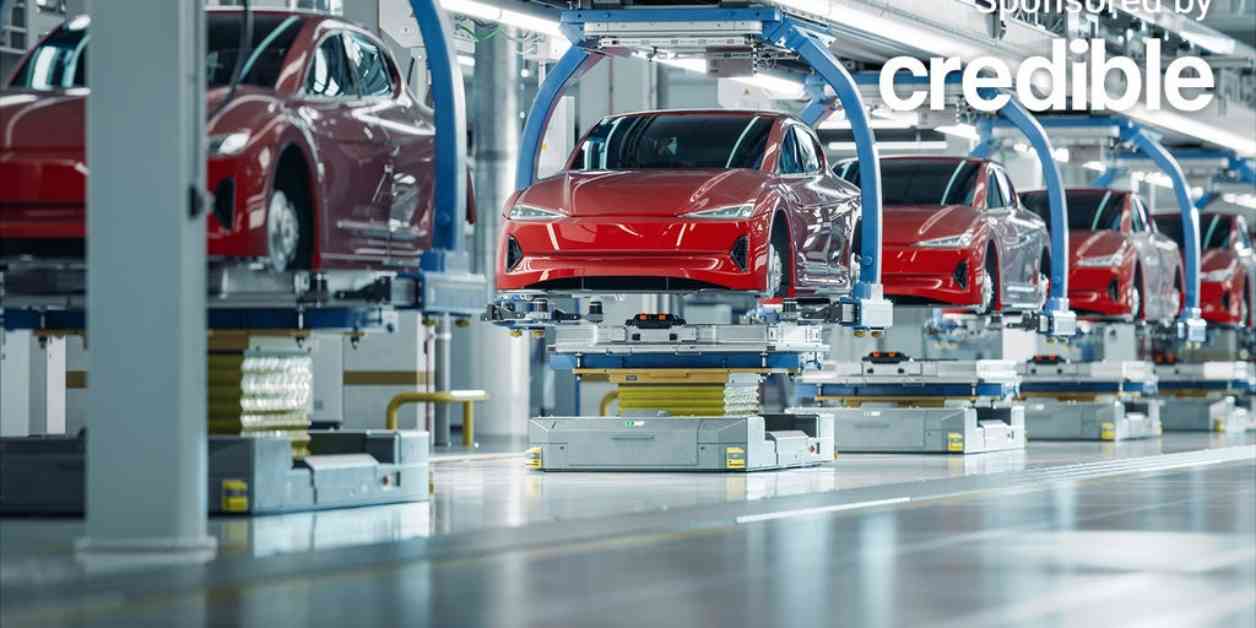The Electric Vehicle (EV) market continues to thrive globally, with record-high sales in the second quarter of 2024 despite some challenges faced by industry leader Tesla. According to a report from Kelley Blue Book, EV sales in the U.S. grew by an impressive 11.3%, reaching a total of 330,463 units sold in the quarter. This growth can be attributed to several factors, including increased availability of EVs, continued discounts, and more leasing options for consumers.
General Motors played a significant role in driving the growth of the EV market with the introduction of new products. However, Tesla experienced a setback with a 6.3% year-over-year drop in sales volume, leading to a decline in their market share to 49.7%, falling below 50% for the first time in the U.S.
Despite Tesla’s challenges, overall electric vehicle sales accounted for approximately 8% of all new vehicle sales in the second quarter, up from 7.1% in Q1 2024. This increase in market share is attributed to rising competition among automakers, leading to price pressure and ultimately boosting EV adoption.
Stephanie Valdez Streaty, Industry Insights Director at Cox Automotive, emphasized the importance of automakers delivering the right product at the right price to drive EV adoption. She noted that as EV infrastructure and technology improve, and more models are launched, consumers will increasingly opt for electric vehicles.
The second quarter of 2024 saw the entry of notable players in the EV market, including the BMW i5, Cadillac Lyriq, Honda Prologue, and Kia EV9 SUV. General Motors also added over 21,000 new EVs to their lineup, including electric versions of popular models like the Chevy Blazer, Equinox, and Silverado.
Looking ahead, Valdez Streaty remains optimistic about the long-term growth of electric vehicle sales, acknowledging that progress may be gradual but is expected to continue as EV infrastructure and technology advance.
The U.S. Senate’s Efforts to Boost EV Production
Recently, the U.S. Senate’s Budget Committee convened to discuss ways to increase electric vehicle manufacturing within the country. Senators from both Democratic and Republican parties participated in the discussion, aiming to capitalize on the growing EV market and compete globally.
Senator Sheldon Whitehouse of Rhode Island led the meeting, with Senator Lindsey Graham of South Carolina expressing support for the initiative. Graham highlighted South Carolina’s significant role as a vehicle assembler and tire exporter, emphasizing the potential benefits of expanding EV production in the state.
While some Republicans have expressed opposition to increased EV production, particularly in relation to President Biden’s goal of achieving 50% electric vehicle sales by 2030, Senator Graham suggested that becoming a major EV manufacturer could enhance U.S. infrastructure.
However, concerns were raised during the meeting regarding the capacity of the current electrical grid to handle the increased demand for electric vehicle charging. The senators also discussed the competitive landscape, highlighting China as the world’s largest manufacturer of electric vehicles due to government support through funds, subsidies, and tax incentives.
Senator Debbie Stabenow of Michigan, another state with a significant automotive industry, voiced concerns about the U.S.’s ability to keep pace with international competitors in the EV market. The discussion underscored the importance of strategic investments and policies to support domestic EV production.
The Changing Landscape of Auto Market Trends
While the auto industry is experiencing a shift in dynamics, with consumers gaining more leverage in the market, corporations are facing challenges. Both new and used car prices are trending downward, offering buyers relief from the inflated prices seen during the pandemic.
The improved supply of new and used vehicles has reduced the need for buyers to pay exorbitant amounts above the sticker price, empowering them to negotiate better deals. Dealers, in turn, have been compelled to offer discounts and incentives to attract buyers in the competitive market.
Despite the favorable trends for consumers, the high cost of financing vehicles remains a concern, particularly with interest rates still at elevated levels. Coupled with persistently high auto insurance rates, the affordability of car ownership continues to be a hurdle for many drivers.
The emergence of electric vehicles as a disruptive force in the auto market has posed challenges for traditional dealerships and automakers, prompting a shift in strategies. Ford CEO Jim Farley acknowledged the transformative impact of EVs on the industry, describing the company’s experience with electric vehicles as “humbling.”
In conclusion, the electric vehicle market has demonstrated resilience and growth in the face of challenges, with record-high sales in the second quarter of 2024. As competition intensifies and technology advances, the future of electric vehicles appears promising, driving a shift towards sustainable transportation options.














